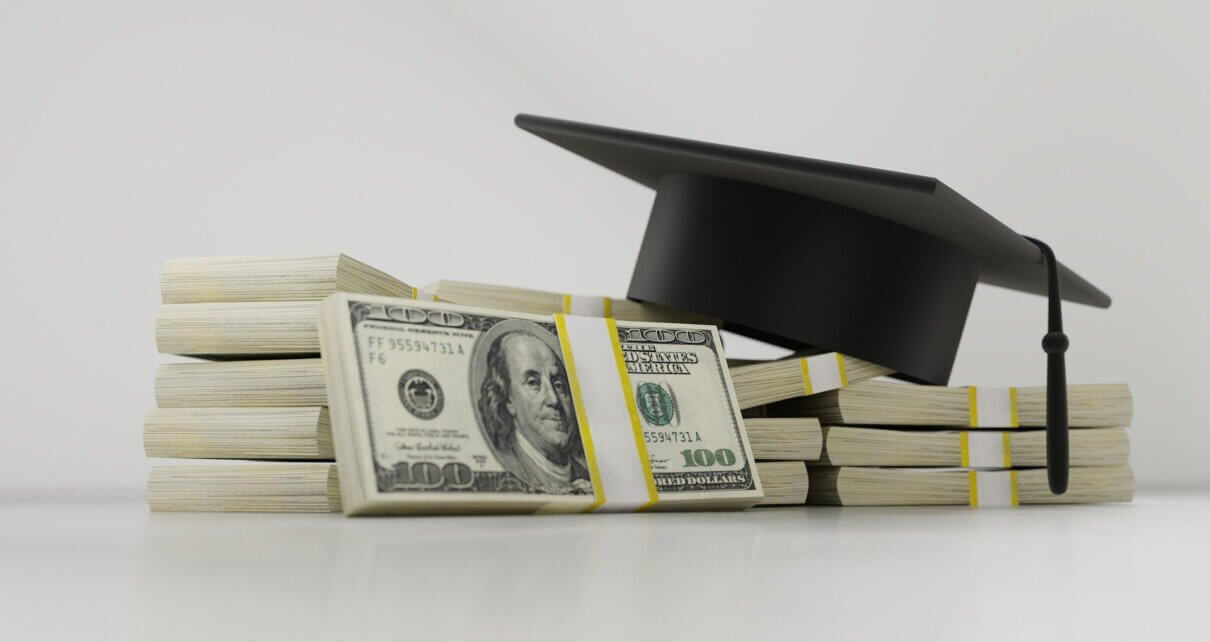In August, US President Joe Biden announced a program aimed at forgiving a portion of the total student loan debt for borrowers earning less than $125,000 per year. Under his plan, borrowers could receive up to $10,000 in forgiveness, while Pell Grant recipients are eligible for upwards of $20,000. Parents who took out Parent PLUS loans are also eligible for debt forgiveness under this program.
Student debt stands as one of the defining issues of American politics and society. Around 43 million borrowers owe approximately $1.6 trillion in debt. According to US News, the average borrower holds around $30,000 – $35,000 in debt. The overwhelming majority of this debt, around 93 percent, is owed to the federal government, with the rest owed to private lenders. Biden’s plan would only apply to debt owed to the federal government.
The Congressional Budget Office has estimated that the program would cost roughly $400 billion.
The history of the current student loan program dates back to President Lyndon B. Johnson, who passed the hallmark Higher Education Act of 1965. Designed to make education more accessible and affordable to America’s poor and marginalized, the act was a major component of Johnson’s Great Society programs. The program also created the foundation for the current scholarship system. It also grants the president the power, through the Secretary of Education, to modify or waive any existing debt. However, this notion has been challenged in court.
On Friday, Oct. 21, a federal appeals court temporarily blocked the program as it heard a case from South Carolina, Missouri, Nebraska, Iowa, Kansas, and Arkansas. The case asserts that the program would deprive states and other organizations, such as the Missouri Higher Education Loan Authority (MOHELA), from potential revenue.
Henry Autrey, US District Judge in St. Louis, has previously ruled that the six states failed to establish standing, and therefore his court lacked jurisdiction over the case.
The current case isn’t the only legal challenge Biden’s program has faced. A conservative group appealed to Supreme Court Justice Amy Coney Barret to block the program, a move which she rejected. Another conservative legal organization saw their case dismissed by a federal judge in Indiana. Their case argued that the plan should be blocked on the ground that it would have implications on state taxes.
Debt from higher education is an issue that has affected many college students across the country.
Isabella Hanna, a senior business major, was skeptical of the program. She said, “I feel like his student loan forgiveness program sounded a bit too good to be true. Considering the program would allocate millions of dollars in student loan relief, I feel like it only makes sense that the other branches of government check the president’s power.” Hanna continued, saying, “on the other side of the coin, I feel college is outrageously expensive. Personally, I believe the problem lies in the hands of universities charging exorbitant amounts of money without any check from the government. If college was affordable, we wouldn’t need programs like these.”
Abigail Brooks, a graduate student studying interactive digital media, took a different tone. She said that “it’s a little bit concerning and disheartening to see the Supreme Court temporarily block Biden’s student loan forgiveness plan.” She continued, “Once everything gets sorted out, I am hopeful that debt will actually be erased for those who qualify. When I was making a decision about what college I wanted to attend, finances were something I had to heavily consider…any help from Biden’s plan would make a world of difference.” Brooks also said that one shouldn’t rely on Biden’s plan, or future debt elimination proposals, and that anyone should be ready to take on the debt they accrue.
Raina Morse, a freshman sociology major, labeled student loans as “a way to ensure that young people have no choice but to enter the job market after college.” Morse also criticized the nature of loans, saying that when students take them, they are “so young that they don’t understand the severity of the financial contract they’re entering into when accepting student loans.” Criticism of student loans as predatory is commonplace across the American political spectrum and is a driving factor behind reforming the system for progressive Democrats.
The case is currently working its way through the courts. Despite the program being blocked, current and former students who hold debt can still apply for the program. The program can be accessed through the Student Aid webpage.




